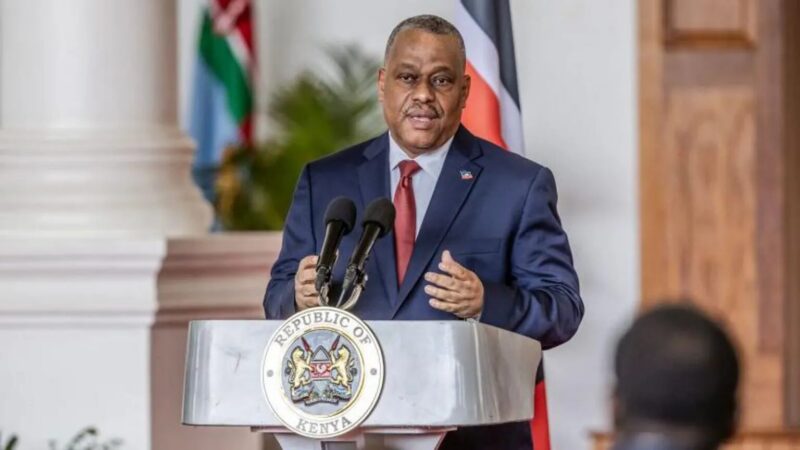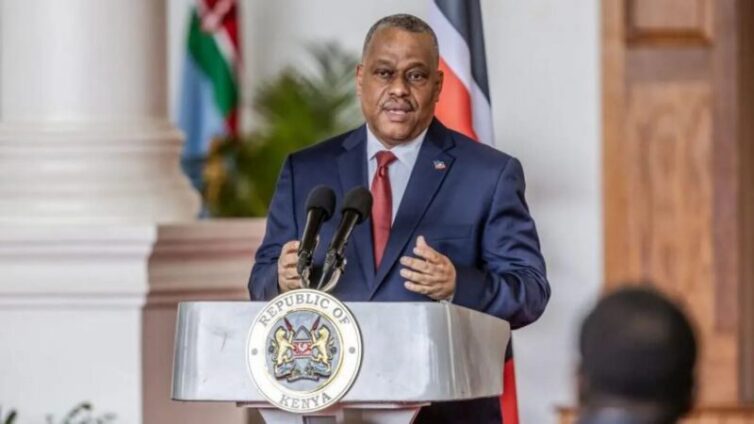Haitian Prime Minister Garry Conille has been fired by the country's ruling council less than six months after he took office.
An executive order, signed by eight of the council's nine members, named businessman and former Haiti Senate candidate Alix Didier Fils-Aime as Conile's replacement.
Conille, a former United Nations official, was brought in to lead Haiti through an ongoing, gang-led security crisis and had been expected to help pave the way for the country's first presidential elections since 2016.
He described his ousting as illegal, saying in a letter - seen by Reuters news agency - that it raised "serious concerns" about Haiti's future.
Haiti currently has neither a president nor parliament and, according to its constitution, only the latter can sack a sitting prime minister.
Conille was sworn in on 3 June.
"This resolution, taken outside any legal and constitutional framework, raises serious concerns about its legitimacy," Conille's letter was quoted as saying.
Haiti's transitional presidential council (TPC) was created in April after Ariel Henry, Conille's predecessor, was forced from office by a network of gangs that had taken over parts of the capital Port-au-Prince.

Henry left Haiti to attend a summit in Guyana on 25 February 2024 and gang members subsequently seized the city's international airport, preventing him from returning.
The TPC was tasked with restoring democratic order to the Caribbean country, where such violence is rife.
More than 3,600 people have been killed in Haiti since January and more than 500,000 have had to leave their homes, according to the UN, which describes Haiti as being one of the poorest countries in the world.
Two million Haitians currently face emergency levels of hunger, UN data shows, while almost half the population "do not have enough to eat".
One of the country's most powerful gang leaders, Jimmy Chérizier, also known as Barbecue, previously said he would be prepared to end the violence if armed groups were allowed to be involved in talks to establish a new government.
Presidential elections were last held in Haiti eight years ago, when Jovenel Moïse of the Tèt Kale party was elected.
Since his murder in July 2021, the post of president has been vacant.
Gangs in Haiti have capitalised on the power vacuum and expanded their control over swathes of the country, which has effectively been rendered lawless in places.
Last month, it was reported that hundreds of police officers had been deployed to Haiti from Kenya, with hundreds more set to join them.
Latest Stories
-
Omane Boamah leads Ghana to join Burkina Faso in honoring Sankara and Rawlings at historic memorial ceremony
21 minutes -
I was 20 when I played for Ghana’s U-17 team – Charles Taylor
2 hours -
Journalist Fentuo Tahiru Fentuo launches Tumu Community Cup set for May 24
3 hours -
Joseph Taylor breaks Ghana’s 29-Year 400m national record with sub-45s run
3 hours -
Greater Accra public lands: Government to set up Commission of Inquiry
3 hours -
Cleanliness to be used for measuring performance of MMDCEs – Mahama
3 hours -
You are now a beacon of hope – Nungua Mantse to President Mahama
4 hours -
‘Smart formalisation’ holds the answer to Africa’s problems – Bawumia
4 hours -
President Mahama assures chiefs and people of Greater Accra of good roads
4 hours -
Mahama announces plans to upgrade Greater Accra Regional Hospital to Teaching Hospital
4 hours -
‘Stop boasting amidst debt’ – Walewale MP chides government
4 hours -
Walewale MP accuses John Jinapor of dubious procurement amid energy sector concerns
4 hours -
Toobu urges humane and collaborative approach to tackling street begging
4 hours -
26-year-old cleaner jailed 36 months for stealing $5k
4 hours -
Herdsman in police custody over cattle theft
4 hours

